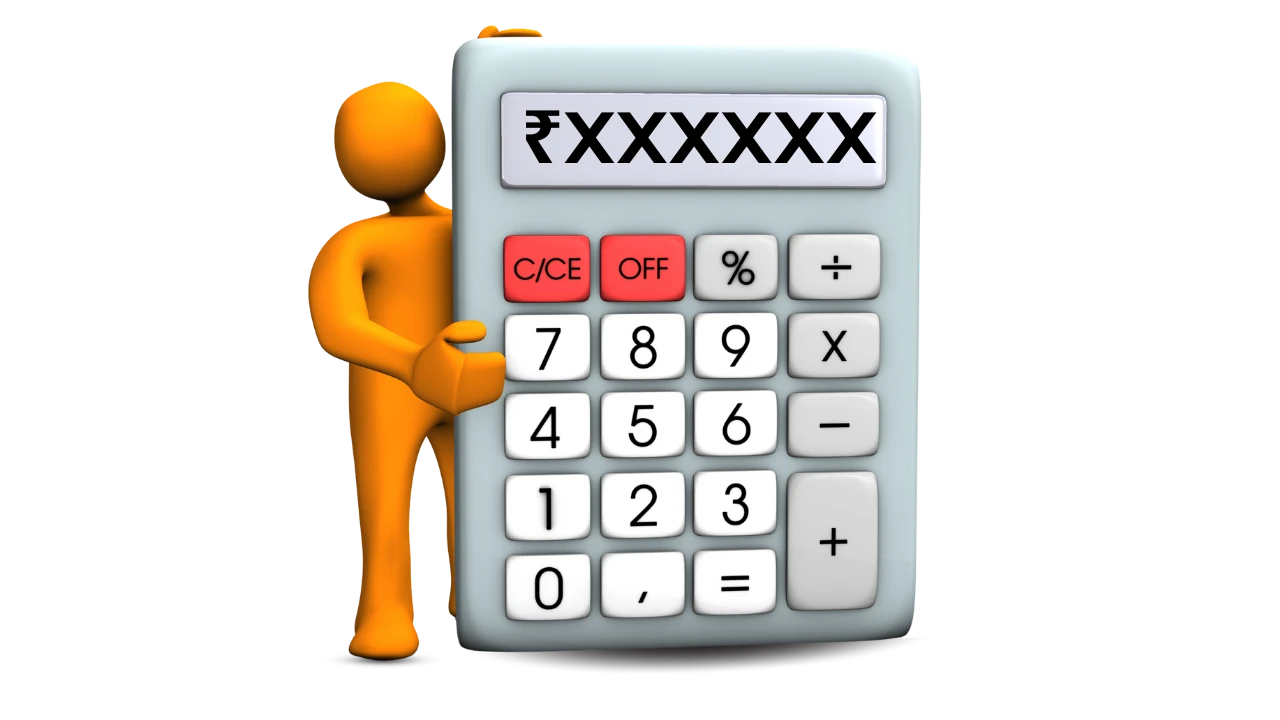The Delhi High Court in SPML Infra Limited v. Power Grid Corporation of India Limited1 held that an Arbitrator cannot pass an enforceable and binding order unilaterally determining their own fees. In this case, the Arbitrator passed an order revising the fees unilaterally, which was subsequently challenged before the court. After hearing the parties, the court set aside the impugned order.
In this article, we will explore how the fees of Arbitrators are fixed, whether the fees, once determined, can be modified or revised, and if so, the stage at which such a revision can take place. Lastly, we will examine whether Arbitrators can unilaterally pass a binding and enforceable order determining their own fees.
Determination of Arbitrators’ Fees: Supreme Court Guidelines in ONGC Case
The issue of enhancement of Arbitrators’ fees was considered by the Supreme Court in ONGC v. Afcons Gunanusa JV2, where the court, after extensively referring to the provisions of the Arbitration Act, issued guidelines regarding the determination of Arbitrators’ fees.
The court issued the following directives-
Upon the constitution of the arbitral tribunal, the parties and the arbitral tribunal shall hold preliminary hearings with a maximum cap of four hearings amongst themselves to finalise the terms of reference (the “Terms of Reference”) of the arbitral tribunal.
The arbitral tribunal must set out the components of its fee in the Terms of Reference which would serve as a tripartite agreement between the parties and the arbitral tribunal In cases where the arbitrator(s) are appointed by parties in the manner set out in the arbitration agreement, the fees payable to the arbitrators would be in accordance with the arbitration agreement.
However, if the arbitral tribunal considers that the fee stipulated in the arbitration agreement is unacceptable, the fee proposed by the arbitral tribunal must be indicated with clarity in the course of the preliminary hearings in accordance with these directives.
In the preliminary hearings, if all the parties and the arbitral tribunal agree to a revised fee, then that fee would be payable to the arbitrator(s). However, if any of the parties raises an objection to the fee proposed by the arbitrator(s) and no consensus can be arrived at between such a party and the tribunal or a member of the tribunal, then the tribunal or the member of the tribunal should decline the assignment.
Once the Terms of Reference have been finalised and issued, it would not be open for the arbitral tribunal to vary either the fee fixed or the heads under which the fee may be charged.
The parties and the arbitral tribunal may make a carve out in the Terms of Reference during the preliminary hearings that the fee fixed therein may be revised upon completion of a specific number of sittings. The quantum of revision and the stage at which such revision would take place must be clearly specified. The parties and the arbitral tribunal may hold another meeting at the stage specified for revision to ascertain the additional number of sittings that may be required for the final adjudication of the dispute which number may then be incorporated in the Terms of Reference as an additional term.
In cases where the arbitrator(s) are appointed by the Court, the order of the Court should expressly stipulate the fee that the arbitral tribunal would be entitled to charge. However, where the Court leaves this determination to the arbitral tribunal in its appointment order, the arbitral tribunal and the parties should agree upon the Terms of Reference as specified in the manner set out in draft practice direction (1) above.
There can be no unilateral deviation from the Terms of Reference. The Terms of Reference being a tripartite agreement between the parties and the arbitral tribunal, any amendments, revisions, additions or modifications may only be made to them with the consent of the parties.
All High Courts shall frame the rules governing arbitrators’ fees for the purposes of Section 11(14) of the Arbitration and Conciliation Act, 1996.
The Fourth Schedule was lastly revised in the year 2016. The fee structure contained in the Fourth Schedule cannot be static and deserves to be revised periodically. We, therefore, direct the Union of India to suitably modify the fee structure contained in the Fourth Schedule and continue to do so at least once in a period of three years.
Can an Arbitrator Unilaterally Determine Their Own Fees?
After issuing the above directions, the court further observed that Arbitrators do not have the power to unilaterally issue binding and enforceable orders determining their own fees. A unilateral determination of fees violates the principles of party autonomy and the doctrine of the prohibition of in rem suam decisions, ie., the arbitrators cannot be a judge of their own private claim against the parties regarding their remuneration.
However, the arbitral tribunal has the discretion to apportion the costs (including arbitrators’ fee and expenses) between the parties in terms of Section 31(8) and Section 31A of the Arbitration Act and also demand a deposit (advance on costs) in accordance with Section 38 of the Arbitration Act. If while fixing costs or deposits, the arbitral tribunal makes any finding relating to arbitrators’ fees (in the absence of an agreement between the parties and arbitrators), it cannot be enforced in favour of the arbitrators.
The arbitral tribunal can only exercise a lien over the delivery of arbitral award if the payment to it remains outstanding under Section 39(1). The party can approach the court to review the fees demanded by the arbitrators if it believes the fees are unreasonable under Section 39(2).
Whether Unilateral Enhancement Of Fee Can Be A Ground To Terminate Mandate of Arbitrator
It is fairly settled that an arbitrator cannot unilaterally enhance their fee. The question that arises, however, is whether the mandate of the arbitrator can be terminated if they pass an order unilaterally determining their own fee. This issue was addressed by the Supreme Court in Chennai Metro Rail Ltd. Administrative Building v. M/S Transtonnelstroy Afcons (JV) & Anr.3. The specific question before the Court was whether an arbitrator’s mandate could be terminated for violating the guidelines laid down in Afcons. The Court first discussed the legal framework governing the grounds on which the appointment of an arbitrator can be challenged.
It was observed that bias—an expression deliberately avoided by the Act, which instead uses the term justifiable doubts about the impartiality of an arbitrator—has multiple facets, including subject matter bias, pecuniary bias, and personal bias. Bias is also described as a predisposition to decide for or against one party without proper regard to the true merits of the dispute. However, there must be a reasonable apprehension of such predisposition.
Disclosure and Independence of Arbitrators
Section 12: Disclosure Requirements and Grounds for Challenge
Section 12(1) of the Arbitration and Conciliation Act, 1996, mandates arbitrators to disclose any circumstances that may give rise to justifiable doubts regarding their independence or impartiality. Additionally, arbitrators must disclose their ability to devote sufficient time to the arbitration proceedings. The explanation to this section lists potential conflicts of interest, which are further elaborated under Section 34 and categorized into seven broad groups in the Fifth Schedule. The prescribed format for disclosure is provided in the Sixth Schedule.
Section 12(2) requires arbitrators to disclose any events or circumstances that arise post-appointment and must mandatorily be shared with the parties. Section 12(3) establishes that an arbitrator may be challenged if justifiable doubts exist concerning their independence or impartiality. However, under Section 12(4), a party may challenge an arbitrator post-appointment only for reasons that become known after the appointment is made.
Section 12(5), inserted on October 23, 2016, begins with a non-obstante clause, overriding any prior agreement to the contrary. It stipulates that individuals with relationships enumerated in the Seventh Schedule—covering 19 specific heads, including professional, familial, or associational relationships—are ineligible for appointment as arbitrators. However, parties may waive these ineligibility conditions through an express written agreement.
Section 14: Termination of Arbitrator’s Mandate
Section 14 addresses circumstances in which an arbitrator becomes unable to act. It mandates the termination of the arbitrator’s appointment and their substitution if they are de jure or de facto unable to perform their duties, fail to act without undue delay, withdraw from office, or if the parties agree to terminate their mandate. Section 14(2) provides that if a controversy arises regarding the grounds for termination under Section 14(1), the matter may be referred to the Court for adjudication.
Categories of Disqualification and Ineligibility
The rules for disqualification and ineligibility fall into two broad categories:
- Pre-appointment Ineligibility: This category is governed by Section 12(1), read with the explanation and the Fifth Schedule, which lists 34 items. If any of these circumstances exist, the appointment of the arbitrator is barred.
- Post-appointment Disqualification: If an arbitrator initially meets the eligibility criteria but subsequently incurs any of the conditions specified in the Fifth Schedule, a party may claim that justifiable doubts exist regarding their independence or impartiality. In such cases, the aggrieved party must first apply to the tribunal under Section 13(2).
Section 13(2) provides that a party challenging the arbitrator must raise the objection within 15 days of becoming aware of the relevant circumstances. If the tribunal rejects the challenge under Section 13(4), it must continue with the proceedings. The award rendered may then be challenged under Section 34 by operation of Section 13(5).
Judicial Interpretation of Bias
The Supreme Court has laid down guiding principles for assessing bias in a catena of judgments:
- S. Parthasarathi v. State of Andhra Pradesh4: The Court distinguished between the tests of real likelihood and reasonable suspicion of bias. It emphasized that a reviewing authority must determine, based on all available evidence, whether a reasonable person would infer a real likelihood of bias.
- Kumaon Vikas Mandal v. Girija Shankar Pant5: The Court reaffirmed Parthasarathi and held that an inquiry officer must not conduct an investigation if right-minded persons would perceive a real likelihood of bias. The apprehension must be based on reasonable and probable grounds.
- Ranjit Thakur v. Union of India6: The Court refined the test of bias by emphasizing the perception of the concerned party rather than the introspection of the judge.
Amendments to Strengthen Disclosure Requirements
Section 12 was significantly amended in 2016 to reinforce disclosure requirements and prevent conflicts of interest. The Supreme Court, in HRD Corporations v. Gas Authority of India Ltd7, made a crucial distinction:
- If justifiable doubts arise regarding an arbitrator’s independence, a disclosure must be made at the stage of appointment, and challenges must follow the procedure under Sections 12(1) to 12(4), read with Section 13.
- However, if the arbitrator becomes ineligible under Section 12(5), no challenge needs to be presented before the arbitrator. Instead, the aggrieved party may directly approach the court under Section 14(1)(a).
This interpretation was reaffirmed in Bharat Broadband Network Limited v. United Telecoms Ltd8, clarifying that once an arbitrator becomes ineligible under Section 12(5), the tribunal’s mandate automatically terminates unless expressly waived by the parties.
The Supreme Court, in its analysis of HRD Corporation (supra) and Bharat Broadband (supra), emphasized that any legal disability under the Fifth Schedule or any circumstance giving rise to justifiable doubts under Section 12(3) must first be raised before the tribunal. This principle aligns with prior rulings on reasonable apprehension of bias, from Manak Lal v. Dr. Prem Chand9 onwards. The Court has consistently held that challenges must be raised at the earliest opportunity before the same forum.
Further, the Court underscored that the statutory time limit of 15 days is a codification of this principle. However, when grounds enumerated in the Seventh Schedule arise, unless expressly waived, they automatically terminate the tribunal’s mandate. The aggrieved party may then challenge the tribunal’s continuation under Section 14.
Based on the above discussion, the court concluded that the attempt by Chennai Metro to challenge arbitrator eligibility on grounds beyond those enumerated in the Act is unsustainable. The Court emphasized that de jure ineligibility cannot be invoked on unenumerated grounds, as this would lead to an unwarranted increase in court challenges and undermine arbitration proceedings. The Act prescribes a well-defined statutory process that must be strictly followed, ensuring procedural certainty and preventing undue judicial interference in arbitration proceedings.
Conclusion
From the above discussion, it can be concluded that once an arbitrator’s fee is fixed, they cannot unilaterally determine or modify their fee through a binding or enforceable order. Since an arbitrator derives authority from a contract, they must operate within its confines and not exceed the agreed-upon fee. Furthermore, we have also analyzed that an arbitrator’s mandate cannot be terminated solely on the ground of a unilateral fee enhancement, as this is not a recognized ground for termination of mandate.
- O.M.P.(MISC.)(COMM.) 286/2023
- 2022 SCC OnLine SC 1122
- SLP (C) No.8553/2022.
- 1973 AIR 2701
- 2001 (1) SCC 182
- 1987 (4) SCC 611
- 2017 (11) SCR 857
- (2019) 6 SCR 97
- 1957 SCR 575.






